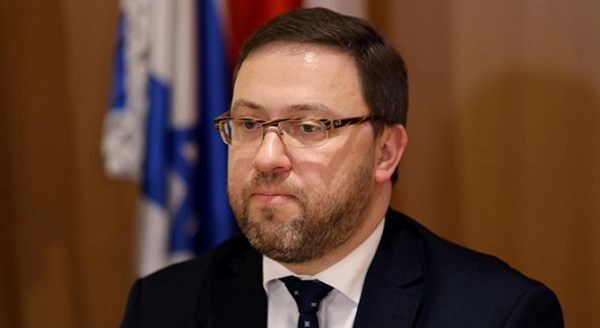Future Polish ambassador to Kyiv: Ukraine building its identity on 'often false images of the past'
Polish Deputy Foreign Minister Bartosz Cichocki, who is soon to become his country’s ambassador to Kyiv, believes that Ukraine is forming its identity on “simplified and often false images of the past”.
“The Ukrainian government is trying to build an identity on simplified and often false images of the past because the modern consciousness of Ukrainian society lacks well-defined uniting elements. In this situation, it is clear why Donald Tusk was pointedly welcomed in Kyiv and Lviv. His speech at the University of Lviv offers Ukraine reconciliation based on a magical reality and a false symmetry of shared grievances,” Polish Radio cites Cichocki as saying.
The diplomat believes that Ukraine incorrectly views the Polish opposition party Civic Platform (represented by Tusk) as a long-term phenomenon, and the ruling party Law and Justice as a temporary anomaly.
The future ambassador also warned that the Ukrainian political elite does not realize the consequences of the moratorium on searching for and exhuming the remains of Polish victims of conflict and repression.
During talks in Kharkiv in 2017, Polish and Ukrainian presidents Andrzej Duda and Petro Poroshenko agreed to establish a Polish-Ukrainian commission on contentious historical matters, to be overseen by the countries’ deputy prime ministers, Piotr Gliński and Pavlo Rozenko.
On 16 February 2018, the deputy prime ministers had their first talks in Warsaw. The Polish Presidential Office expressed dissatisfaction with the results since no agreement had been reached to lift the ban on exhuming Poles in Ukraine.
The moratorium was imposed by the Ukrainian Institute of National Remembrance in response to acts of vandalism against memorials at Ukrainian graves in Poland, including the removal of a Ukrainian monument in the village of Hruszowice.
